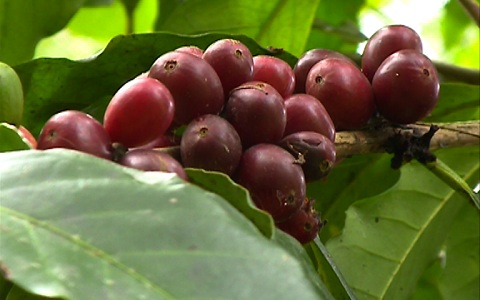Although PNG has conducive climate to grow organic coffee, farmers have been faced with challenges in unstable coffee prices and lack of government’s financial support.
The impacts of a new government policy in revitalizing coffee industry, which was launched in Goroka about a week ago, will be felt in the coming years.
Local MP’s of coffee producing districts will also be working together with farmers, to make the industry grow.
In 2011, PNG’s coffee exports generated revenue of nearly a billion kina, but in 2013, the export revenue dropped to a mere K3 million.
That was according to the PNG’s coffee regulatory body, the Coffee Industry Cooperation.
The drop in export revenue was spurred by the limited government’s intervention in the industry.
But all this might now be the thing of the past.
The comeback of this once thriving industry in Papua New Guinea, is expected to be bigger than the previous years.
First, the coffee industry got K50 million as a support grant from the National Government.
It is sitting in the agriculture bank to assist small-scale farmers to start their coffee business.
Also, coffee farmers were given coffee export licenses.
This gives them the opportunity to avoid the middleman, who has the bargain power to choose coffee prices, and for the most, who buy coffee at a lower price.
A band of politicians from coffee producing districts, have also taken on the responsibility of making sure that the industry progresses well.
In Eastern Highlands, Governor Julie Soso, Robert Atiyafa and Bire Kimisopa will be in the forefront of the industry.
In the other end of the country, in Morobe Province, Bob Dadae of Kabwum and Gisuwat Siniwin Nawaeb, have been taking personal responsibilities, to help coffee farmers redevelop the industry in their district.
If these districts succeed in reviving PNG’s coffee industry, they will contribute over a billion kina into the national governments purse.


